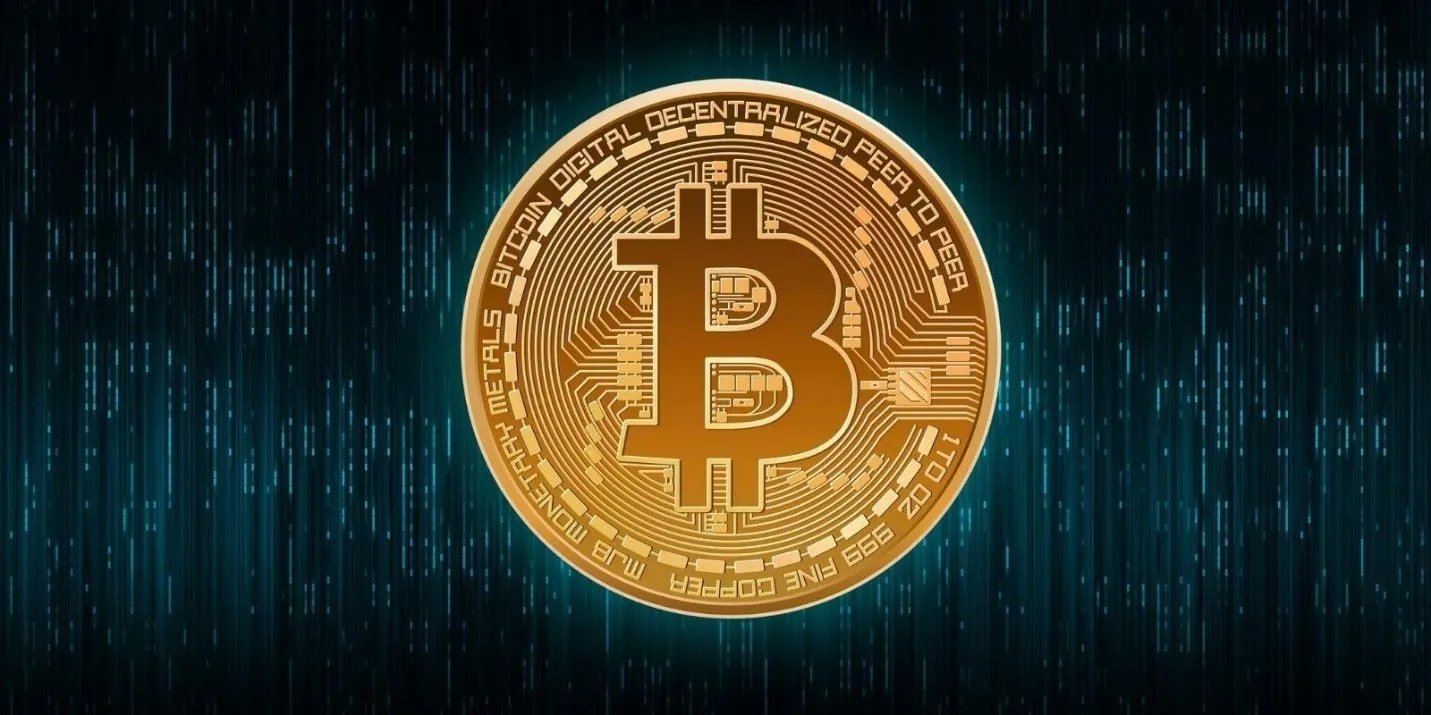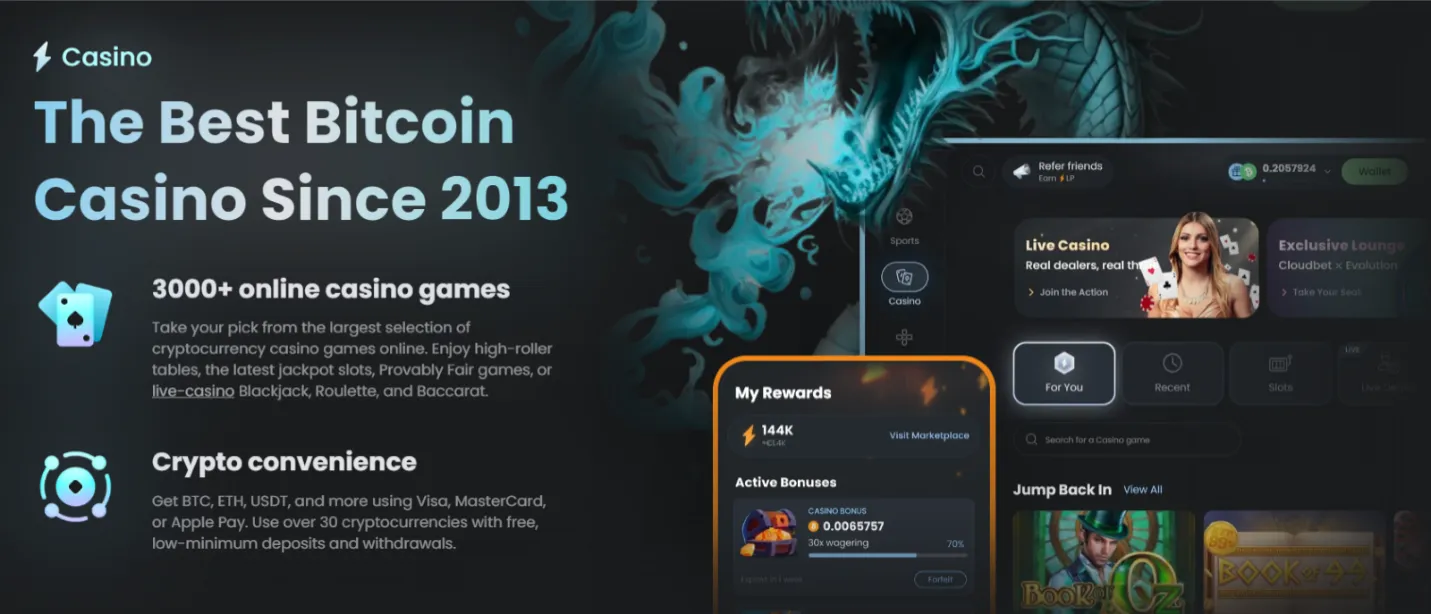Bitcoin: a popular cryptocurrency for payments
In recent years, Bitcoin has become more than just a digital currency; it has evolved into a transformative force, infiltrating various facets of our daily lives. Bitcoin's influence has transcended mere financial realms, permeating diverse facets of modern living.
Among its multifaceted applications, its prevalence in online casinos stands as a testament to its widespread acceptance and utility. In this digital era, Bitcoin has emerged not only as a popular cryptocurrency but also as a significant player in the realm of online gambling and casino transactions.
|
Characteristic |
Description |
|
📅 Year of Inception |
2009 |
|
👤 Founder |
Satoshi Nakamoto |
|
💲 Bitcoin price USD |
Varies |
|
🔝 Maximum Supply |
21 million BTC |
|
🔗 Blockchain Technology |
Decentralized, distributed ledger technology |
|
💼 Use Cases |
Peer-to-peer transactions, store of value, digital gold |
|
⛏ Mining Algorithm |
Proof of Work (SHA-256) |
|
🌐 Notable Features |
Decentralization, scarcity, pseudonymity, borderless, censorship-resistant |
|
💹 Popular Exchanges |
Coinbase, Binance, Kraken, Bitstamp, Gemini |
Understanding Bitcoin

Bitcoin, the pioneering cryptocurrency, has become a cornerstone in the world of digital finance. Its unique features distinguish it from traditional fiat currencies, offering users a decentralized and borderless financial experience.
Understanding Bitcoin is crucial for navigating the evolving landscape of digital currencies, and its differences from fiat currencies highlight the unique advantages it brings to the world of finance. The table summarizes key distinctions between Bitcoin and traditional fiat currencies, emphasizing the decentralized, transparent, and inclusive nature of Bitcoin transactions:
|
Criteria |
Bitcoin |
Fiat Currency |
|
🔗 Decentralization |
Operates on a decentralized blockchain, meaning no central authority or government controls it. |
Centralized and typically controlled by a government or central bank. |
|
🔄 Supply Limit |
Limited supply capped at 21 million bitcoins, ensuring scarcity and potentially preserving value. |
Central banks can issue unlimited amounts of fiat, leading to inflationary pressures. |
|
🔍 Transaction Transparency |
Transactions are transparent and recorded on the public blockchain, enhancing traceability. |
Fiat transactions can lack transparency, and centralized authorities may control data access. |
|
🌐 Global Accessibility |
Accessible globally with equal opportunities for users, regardless of geographic location. |
Accessibility depends on local banking infrastructure and regulatory policies. |
|
🚫 Censorship Resistance |
Resistant to censorship, as transactions are pseudonymous and not easily controlled by authorities. |
Fiat transactions may be subject to censorship, freezing, or seizure by regulatory bodies. |
|
💹 Volatility |
Exhibits price volatility due to market dynamics and limited liquidity. |
Generally less volatile, but fluctuations can still occur based on economic factors. |
|
💸 Transfer Speed and Cost |
Transaction speed varies but may take longer during times of network congestion. Transaction costs are generally lower. |
Fiat transactions can be faster but may incur higher fees, especially for international transfers. |
|
🌍 Financial Inclusion |
Facilitates financial inclusion by providing access to banking services for the unbanked. |
Traditional banking may exclude individuals due to stringent requirements or lack of infrastructure. |
|
🕵️ Ownership Anonymity |
Provides a degree of ownership anonymity, as users are identified by cryptographic addresses. |
Bank transactions are tied to personal identities, reducing anonymity. |
Bitcoin Price Trends
The dynamic nature of Bitcoin's price has captivated the attention of investors and enthusiasts alike. Understanding the factors that influence Bitcoin price trends is crucial for those navigating the cryptocurrency market.
- Bitcoin is renowned for its price volatility, with fluctuations occurring on a daily basis. Several key factors contribute to the formation of Bitcoin prices:
- Market Demand and Supply: Like any asset, Bitcoin prices are influenced by the basic economic principles of supply and demand. Increased demand often drives prices higher, while heightened selling pressure can lead to declines.
- Market Sentiment: Investor sentiment plays a significant role in Bitcoin's price movements. Positive news, regulatory developments, or institutional adoption can boost confidence, driving prices upward. Conversely, negative news or regulatory uncertainties can lead to selloffs.
- Technological Developments: Upgrades or changes to the underlying technology of Bitcoin, such as software upgrades or scalability improvements, can impact price dynamics.
- Macro-Economic Factors: Bitcoin's price can be influenced by broader economic trends, geopolitical events, and macroeconomic indicators. Economic instability or inflation concerns may drive increased interest in Bitcoin as a store of value.
- Regulatory Environment: Changes in the regulatory landscape, either favorable or restrictive, can have a profound impact on Bitcoin prices. Regulatory clarity often leads to increased adoption and, consequently, higher prices.
Risks and Advantages

Bitcoin's first-mover advantage, recognition, and established network give it a unique position in the cryptocurrency space. Its decentralized nature and finite supply differentiate it from traditional fiat currencies and other cryptocurrencies.
While Bitcoin presents numerous opportunities, it also carries certain risks:
- Volatility Risk: The price volatility that attracts traders also poses a risk of sudden and significant losses.
- Regulatory Risk: Evolving regulatory environments worldwide can impact the legality and use of Bitcoin.
- Security Concerns: Hacks and security breaches on cryptocurrency exchanges can result in losses for users.
Navigating Bitcoin Payments
To embark on the journey of using Bitcoin for transactions, the first step is creating a digital wallet. A Bitcoin wallet serves as a secure digital space to store, send, and receive bitcoins. Numerous wallet options are available, each offering varying features and levels of security. Popular choices include hardware wallets, software wallets, and mobile wallets.
Once a wallet is secured, users can explore avenues to acquire bitcoins. One common method is through cryptocurrency exchanges. These platforms facilitate the exchange of traditional currencies, including Bitcoin USD. Users can link their bank accounts or credit cards to purchase bitcoins directly, or they can exchange other cryptocurrencies for Bitcoin.
The process of exchanging Bitcoin to USD involves selling Bitcoin on a cryptocurrency exchange and withdrawing the corresponding USD to a linked bank account. It's essential to choose a reputable exchange with robust security measures to safeguard your funds. Several popular cryptocurrency exchanges support fiat-to-Bitcoin transactions, making it accessible for users to engage in the digital currency ecosystem.

Once users have acquired bitcoins, the possibilities for their use are extensive. Beyond being a speculative investment, bitcoins can be utilized for various payments, both online and offline. Moreover, many online businesses, including reputable online casinos, now accept Bitcoin payments. Depositing bitcoins into an online casino account not only provides a seamless transaction experience but often comes with enhanced privacy, security, and, in some cases, exclusive bonuses for cryptocurrency users.
|
Bitcoin Casino |
Welcome Bonus |
Payment Options |
|
🎉 BC.Game |
180% Bonus |
Bitcoin, Ethereum, Binance Coin, +101 |
|
🔙 Bitcasino |
20% cashback |
Bitcoin, Ethereum, XRP, +8 |
|
💰 Wild Casino |
Up to 3.5 BTC + 400 freespins |
Bitcoin, Ethereum, Dogecoin, +3 |
|
🎰 Mega Dice |
200% + 50 free spins |
Bitcoin |
|
🎲 Lucky Block |
200% |
Bitcoin, Dogecoin, Litecoin, +15 |
Future of Bitcoin in Online Payments
The future of Bitcoin in online payments is a dynamic landscape shaped by continuous innovation and growing acceptance. As the world increasingly recognizes the potential and advantages of decentralized currencies, Bitcoin stands out as a frontrunner in reshaping the future of online transactions.
The ongoing integration of Bitcoin into mainstream financial systems and the adoption by major businesses contribute to its credibility as a reliable payment method. The decentralized nature of Bitcoin ensures security and transparency, mitigating concerns related to fraud and unauthorized access.
The future of Bitcoin in online payments appears promising, marked by increased adoption, technological advancements. As the digital landscape evolves, Bitcoin is poised to play a pivotal role in shaping the future of online financial transactions.
FAQ
How does Bitcoin work as a payment method?
Bitcoin operates on a decentralized blockchain, allowing secure and transparent transactions. Users can send and receive payments globally without relying on traditional banking systems.
How can I start using Bitcoin for transactions?
To start using Bitcoin, you need a digital wallet to store your coins. You can acquire Bitcoin through exchanges by converting traditional currencies like USD. Once obtained, you can use it for various transactions.
How can I get free Bitcoin?
Earning free Bitcoin is possible through various methods, including participating in faucets, completing online tasks, or engaging in crypto mining. These avenues provide opportunities to accumulate small amounts of Bitcoin over time.

